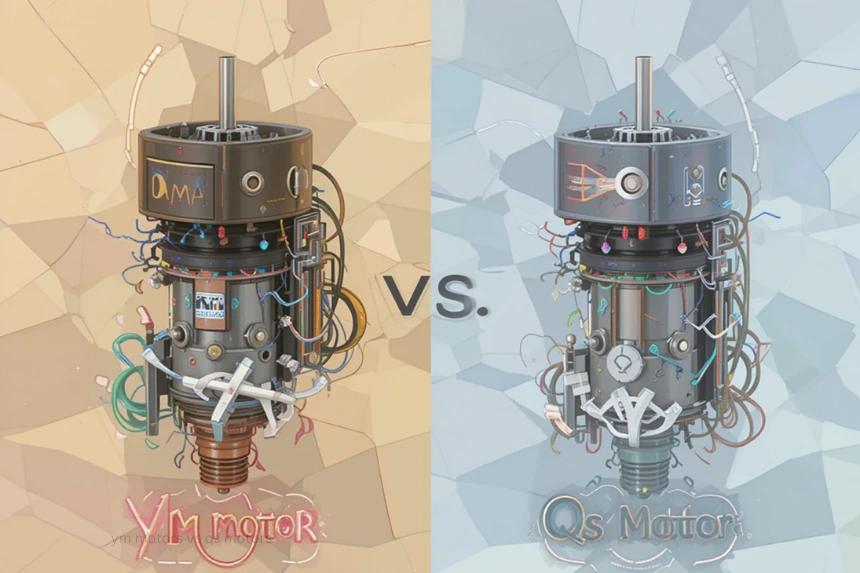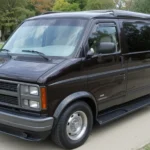The selection of motors has a major influence on performance, longevity, and the success of a project in the fields of robotics, remote-controlled vehicles, and electric propulsion. Among the many brands available on the market, YM Motors and QS Motors are two popular options favored by hobbyists, students, and professionals alike. But how do these two brands compare? In this article, we’ll examine YM motors vs QS motors in terms of their specifications, performance, durability, and value, helping you make an informed decision for your next project.
Overview of YM Motors and QS Motors
Before diving into the comparison, it’s essential to understand what each brand offers.
YM Motors
YM Motors, often recognized for their affordability and diverse range, are mostly employed in hobbyist robotics, small drones, and educational kits. They are known for providing good torque and speed at budget-friendly prices, making them popular among beginners and enthusiasts wanting reliable motors without breaking the bank.
QS Motors
In contrast, QS Motors is a well-known manufacturer that specializes in creating high-quality brushless motors for bespoke robotics, drones, and remote-controlled cars. They focus on delivering high efficiency, precise control, and durability, often catering to professional and competitive users who prioritize performance over cost.
Performance: Power, Speed, and Efficiency
One of the primary considerations when comparing YM motors vs QS motors is their performance metrics.
Power and Torque
YM Motors: Typically offer decent torque and power suitable for small to medium applications. They are generally brushed motors with moderate efficiency, ideal for educational projects, basic robots, and entry-level drones. The torque output can vary based on the model, but they are often rated for lower power applications.
QS Motors: Specialize in brushless motors that deliver high power-to-weight ratios. They are designed to provide substantial torque and higher RPMs, making them suitable for fast racing drones or high-performance RC vehicles. Their high-quality magnets and stator designs contribute to superior power output.
Speed and RPM
YM Motors: Usually operate within a moderate speed range, often suitable for beginner and hobby applications. They may have limitations in achieving very high RPMs compared to brushless alternatives.
QS Motors: Designed for high-speed performance, with many models capable of reaching tens of thousands of RPMs. This high rotational speed enables faster acceleration and higher top speeds, essential for competitive racing or demanding tasks.
Efficiency and Heat Management
YM Motors: Being brushed motors, they tend to be less efficient and generate more heat during operation. This can lead to quicker wear and reduced lifespan if not properly cooled.
QS Motors: As brushless motors, they boast higher efficiency, less heat generation, and longer operational lifespans. Their advanced winding configurations help maintain optimal performance over extensive use.
Durability and Build Quality
Durability is crucial, especially for projects exposed to harsh environments or extended use.
YM Motors: Generally constructed from basic materials suitable for educational and hobbyist uses. While reliable within their intended scope, they may not withstand prolonged exposure to extreme conditions or heavy workloads.
QS Motors: Often made of high-quality materials, they often have robust casings, precise bearings, and reinforced titanium shafts.Longevity, stress resistance, and consistent performance in demanding applications are guaranteed by these characteristics.
Price and Value for Money
Cost is always a major factor in choosing motors for your projects.
YM Motors: Usually very affordable, making them excellent options for beginners, schools, or prototyping. They offer great value for less critical applications but may lack the performance features needed for high-end projects.
QS Motors: Typically come with a higher price tag, reflecting their superior quality, efficiency, and performance capabilities. They are a preferred choice for serious hobbyists and professionals who require consistent, high-level performance.
Applications: Where Do They Shine?
Understanding the ideal use cases for each brand helps in making the right choice.
YM Motors
- Educational robotics kits
- Small drones and multi-rotors
- Basic RC cars
- Entry-level projects and prototypes
QS Motors
- High-performance RC cars and trucks
- Racing drones and quadcopters
- Professional robotics and automation
- Custom projects requiring high efficiency and durability
Pros and Cons Summary
| Feature | YM Motors | QS Motors |
| Price | Budget-friendly | Higher cost |
| Performance | Moderate torque and speed | High torque, high speed |
| Build Quality | Basic materials | High-quality, durable materials |
| Efficiency | Lower | High |
| Applications | Education, beginner projects | Racing, professional projects |
Conclusion: Making the Right Choice
YM Motors vs QS Motors each serve different needs and user profiles. If you’re just starting out, working on educational projects, or building prototypes, YM motors offer a cost-effective solution with reliable performance for simple applications. They’re perfect for beginners who want to learn the basics of motor control without significant upfront investment.
Conversely, for those who require high performance, durability, and efficiency—such as competitive racers, professional robotics developers, or serious hobbyists—QS motors are the better choice. Their advanced design and superior materials translate into enhanced speed, power, and longevity, justifying their higher cost.
Ultimately, the decision depends on your project’s needs, budget, and performance expectations. Carefully evaluating these factors will ensure you select the right motor for your specific application, whether it’s the economical YM motors or the high-performance QS motors.



